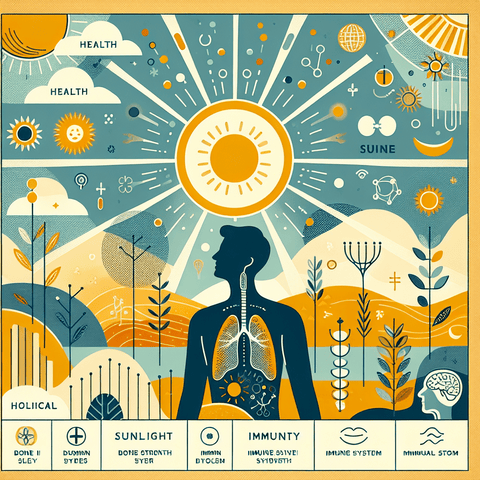Introduction
Dietary supplements have grown in popularity over recent decades, becoming a staple in many households around the world. From multivitamins and minerals to herbal extracts and omega-3 capsules, the global supplement market is booming, driven by consumers striving for better health, energy, longevity, and immune support. However, the question that often arises is: “How do I know if I need dietary supplements?” Understanding whether supplements are necessary for you personally requires a careful look at your current health status, diet, lifestyle, and specific nutritional needs. This blog post provides science-based insights and step-by-step guidance to help you make informed decisions about whether you need to incorporate supplements into your daily routine.
A good starting point is to understand what dietary supplements are, why people use them, and what factors signal the need for supplementation. It's also essential to remember that supplements are not a substitute for a poor diet but rather a tool to fill in nutritional gaps when necessary. Let's explore this complex but critical topic in-depth.
1. Dietary Supplements: An Essential Part of Your Nutritional Plan
Dietary supplements refer to products designed to provide nutrients that may not be consumed in sufficient quantities through food. These can include vitamins, minerals, amino acids, enzymes, herbs, and other botanicals. They are available in various forms such as tablets, capsules, powders, gels, and liquids, making them easily accessible and customizable to individual needs.
People turn to dietary supplements for various reasons, including:
- Compensating for poor dietary choices or limited food access
- Supporting aging-related nutrient malabsorption
- Enhancing physical performance or recovery
- Improving skin, hair, or general vitality
- Boosting immunity or combating fatigue
It's essential to acknowledge that not everyone needs dietary supplements. Some individuals may meet all their nutritional needs through a balanced and varied diet. However, for others—such as those with restrictive diets, medical conditions, or specific life stages—supplements may be an indispensable part of ensuring optimal health.
The key lies in understanding your personal health profile and identifying whether supplementation is a necessity or an accessory in your nutritional plan. Recognizing the signs of nutritional insufficiency and knowing when to integrate supplements plays a vital role in maintaining your health proactively.
For example, foods rich in omega-3 fatty acids may not be consumed frequently enough in typical diets. In such cases, DHA and EPA omega-3 supplements may offer a reliable alternative to support cardiovascular and cognitive health. You can explore a range of options in our omega-3 supplements collection.
2. Supplement Deficiency: Spotting Signs of Nutritional Shortfalls
Nutritional deficiencies are more common than most people realize. Suboptimal nutrient levels can develop gradually and quietly, manifesting in vague symptoms that are often dismissed or misattributed. Typical deficiencies include lack of vitamin D, iron, magnesium, vitamin B12, calcium, and omega-3 fatty acids.
Common symptoms associated with nutritional deficiencies include:
- Persistent fatigue or low energy
- Muscle cramps or weakness
- Brittle nails and hair loss
- Brain fog or difficulty concentrating
- Frequent infections or poor wound healing
- Mood disturbances such as irritability or depression
Certain groups are more vulnerable to deficiencies due to factors like age (e.g., seniors have reduced nutrient absorption), lifestyle (e.g., restrictive diets or lack of sun exposure), specific health conditions (e.g., gastrointestinal issues), and medication use that interferes with nutrient levels. For instance, people with limited sun exposure are particularly at risk for vitamin D deficiency. In these cases, supplementation can be highly beneficial. Check out our curated vitamin D products to support better levels throughout the year.
Diagnosis of a deficiency should ideally be based on clinical assessments. Blood tests can provide objective measurements for vitamin D, B12, iron status, and more. It's advisable to consult with a healthcare provider who can recommend specific tests based on your symptoms and history. Self-diagnosing can lead to over-supplementation, which carries its own set of risks.
Professionally guided evaluations help ensure that any supplement regime is grounded in real data, not guesswork. Medical assessments combined with food frequency questionnaires can provide a holistic overview of your nutrient intake and highlight deficiencies that require attention.
3. Nutrient Gaps: Bridging the Nutrition You Might Be Missing
Modern life presents numerous barriers to eating a complete and balanced diet. Whether it's time constraints, long work hours, or the prevalence of processed foods, the average person often struggles to meet daily nutrient recommendations. Studies indicate that common gaps exist in the intake of calcium, fiber, magnesium, potassium, and vitamin C.
Dietary limitations such as veganism, gluten-free, or dairy-free eating habits can contribute significantly to nutrient gaps. For instance, individuals who avoid dairy may struggle with calcium and vitamin K intake, increasing the risk of weakened bone structure. You can find suitable options to support bone and blood health in our vitamin K supplement collection.
Beyond dietary patterns, the nutrient quality of commonly consumed foods has changed. Soil depletion, food processing, and long storage times have reduced the density of essential nutrients in fruits and vegetables. This "hidden hunger" contributes to undernourishment even in calorie-sufficient diets.
Recognizing an insufficient diet means looking at your food diversity and intake frequencies. Are you eating at least five servings of fruits and vegetables daily? Are you including whole grains, lean proteins, fatty fish, and nuts in your weekly diet? If not, you may be unknowingly exposing yourself to nutritional voids.
Supplements can help bridge these gaps without replacing food. It's important to supplement smartly—filling in the gaps where real food intake consistently falls short, without exceeding tolerable upper intake levels. For instance, if your diet lacks seeds, nuts, and legumes, you might consider a magnesium supplement to support muscle and energy metabolism.
Ultimately, minor nutritional gaps can evolve into major health issues over time, making early intervention through tailored supplementation a practical strategy in long-term preventive health.
4. Whole Food Benefits: Why Primary Nutrition Should Come From Food
While supplements can support health, whole foods should always be the foundation of your nutritional intake. Whole foods offer a naturally balanced composition of nutrients, fibers, antioxidants, and bioactive compounds that work synergistically to support health in ways that isolated nutrients cannot fully replicate.
For example, an orange offers not just vitamin C but also fiber, flavonoids, and plant-based compounds that increase the antioxidant power of the fruit. Even though you can take vitamin C supplements for additional immune support, they should complement—not replace—a nutrient-dense diet rich in fruits and vegetables.
Supplements are most effective when used to augment a healthy eating pattern. They can help prevent or correct shortfalls, especially when whole food consumption is lacking for reasons beyond your control, such as seasonal availability, medical conditions, or appetite loss.
The nutritional synergy found in whole foods includes:
- Nutrient absorption facilitators (e.g., fat-soluble vitamins like A, D, E, and K absorbed better with fats)
- Fiber to support digestion and stabilize blood sugar
- Natural antioxidants and inflammation-control compounds
There are circumstances where whole foods aren’t enough. Chronic digestive issues, for example, can reduce nutrient absorption from food, necessitating supplemental support. Elderly individuals may experience diminished appetite or difficulty chewing, making it hard to consume the recommended amounts of fruits, vegetables, and proteins.
In such cases, balanced supplementation can contribute to energy, immune function, and overall wellness. But remember—just as taking a multivitamin won’t compensate for a fast food diet, even the best supplements are no replacement for poor nutrition.
5. Personalized Supplementation: Tailoring Nutrients to Your Unique Needs
Nutritional supplementation is not a one-size-fits-all solution. Every individual has unique needs determined by various factors such as age, gender, genetic predispositions, lifestyle, medical history, and current health goals. Personalization ensures you get the nutrients your body needs, in the right amounts, avoiding both deficiencies and excesses.
For instance, a middle-aged woman with heavy menstruation might need additional iron; an older adult with limited sun exposure might require higher doses of vitamin D. An athlete may need more magnesium for muscle function and recovery. Understanding your health context is essential in customizing a supplement plan that’s truly effective and safe.
The best way to develop a personalized strategy is by working with healthcare professionals who can help define your goals (e.g., improving energy, reducing stress, increasing physical endurance) and assess your health markers. An individualized approach will often include:
- General lab testing and nutrient panels
- Dietary recalls or food diaries
- Lifestyle and activity analysis
- Allergy or intolerance consideration
Over-supplementation, often a consequence of self-diagnosing, can carry risks such as toxicity or nutrient imbalances. For example, excessive vitamin D intake can lead to high calcium levels and kidney issues. Ensuring you take the right dose and combination is as crucial as the decision to supplement itself.
Choosing high-quality supplements made from bioavailable and thoroughly tested ingredients is also vital. Products on topvitamine.com meet high standards of purity and transparency, allowing you to trust what you’re putting into your body.
6. Health Assessment: The First Step Toward Informed Supplement Use
Before starting any supplement, it's imperative to evaluate your current health and nutrition status comprehensively. Guesswork can often lead to mismatched supplementation and may mask underlying health problems. A structured health assessment involves both self-evaluation and professional input.
Begin with a food diary to analyze your regular dietary habits. Are you eating a variety of nutrient-dense foods? Are certain food groups consistently missing? Paired with symptom tracking (e.g., fatigue, sleep issues, hair loss), this approach can help you discover patterns that suggest deficiencies.
Next, consult a qualified healthcare professional such as a dietitian, nutritionist, or physician. They can order blood tests and use diagnostic tools to quantify nutrient levels such as vitamin B12, iron, D, and magnesium. With that data in hand, you can make evidence-based decisions about where, if anywhere, supplementation is needed.
Moreover, supplementation goals should be reviewed periodically. Health conditions, stress levels, life stages (e.g., pregnancy, menopause), and medications can change your nutritional requirements. Regular testing and mindful monitoring ensure your supplement plan remains aligned with your current needs.
Stay updated with the science-backed options and explore how targeted supplementation can reinforce your wellness journey with topvitamine.com. It's your health—take charge with confidence and clarity.
Conclusion
Determining whether you need dietary supplements is not as simple as picking up a bottle from the health store. It requires an honest assessment of your diet, lifestyle, health status, and nutritional goals. Supplements can offer real benefits, especially in times of increased demands, aging, or dietary restrictions, but they work best when used judiciously and alongside a healthful diet of whole foods.
Start by understanding your body’s unique needs, look out for signs of deficiencies, and use healthcare tools to evaluate your nutrient status. From there, work with professionals to create a plan that fills in any gaps while avoiding unnecessary or excessive supplementation. Balanced nutrition and expert-backed choices empower you to live healthier, stronger, and more vibrantly.
Bottom line: when used thoughtfully and responsibly, supplements can be excellent allies in your wellness journey.
Call to Action
- Consult with your healthcare provider to assess your current nutritional status
- Shop high-quality, curated supplement options at topvitamine.com
- Stay informed with dependable, science-backed health guidance to meet your evolving nutritional needs
Q&A Section
Q1: How can I tell if I’m deficient in a certain nutrient?
Symptoms like fatigue, muscle cramps, hair loss, and frequent cold infections might suggest a deficiency. The most accurate way to determine this is through blood tests and dietary analysis conducted by a healthcare professional.
Q2: Are supplements necessary if I eat healthily?
If your diet is diverse and well-balanced, you may not require supplements. However, due to lifestyle factors, aging, or absorption issues, even healthy eaters may benefit from targeted supplement use to optimize their nutrient intake.
Q3: Which supplements should I consider first?
Commonly beneficial supplements include vitamin D, magnesium, omega-3 fatty acids, and vitamin B12—especially for individuals with restricted diets or specific health concerns. Always consult your doctor before starting any new supplement.
Q4: Can I take too many supplements?
Yes, over-supplementation can cause adverse effects like nutrient toxicity, especially with fat-soluble vitamins or minerals like iron. Personalized plans based on clinical evidence minimize these risks.
Q5: Where can I buy trustworthy supplements?
Visit topvitamine.com for a broad range of verified and professionally curated nutritional supplements that meet high safety and purity standards.
Important Keywords
- dietary supplements
- nutritional deficiencies
- personalized supplementation
- health assessment supplements
- vitamin D supplements
- magnesium for energy
- vitamin K for bone health
- omega-3 DHA EPA
- whole foods vs supplements
- supplementation for immunity



